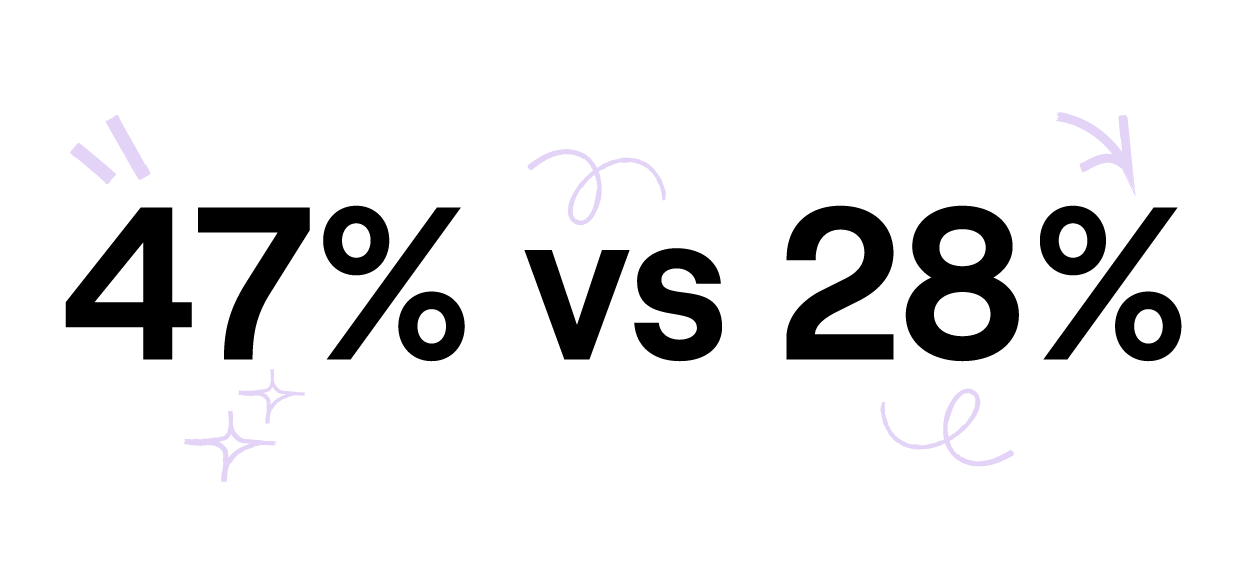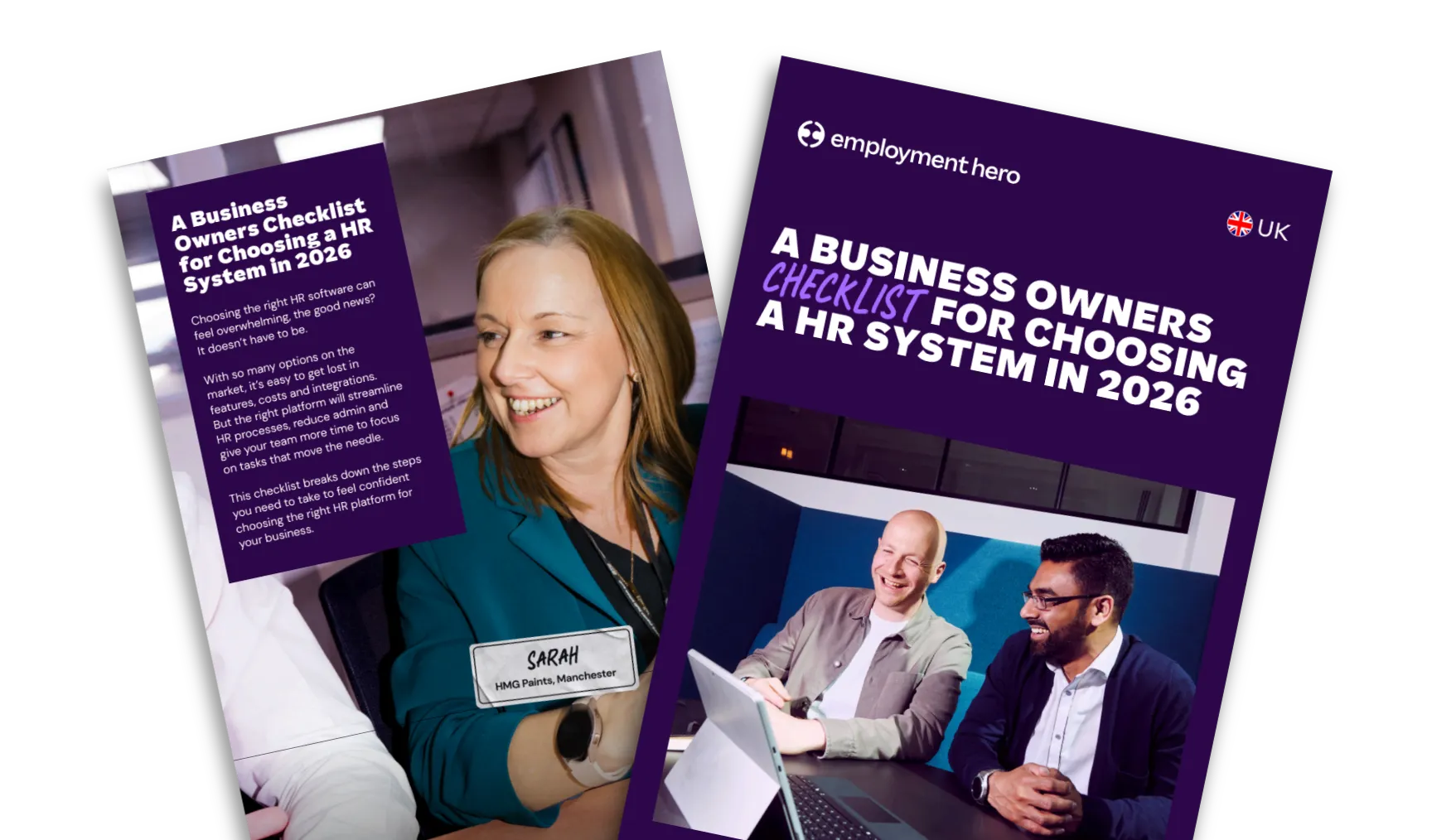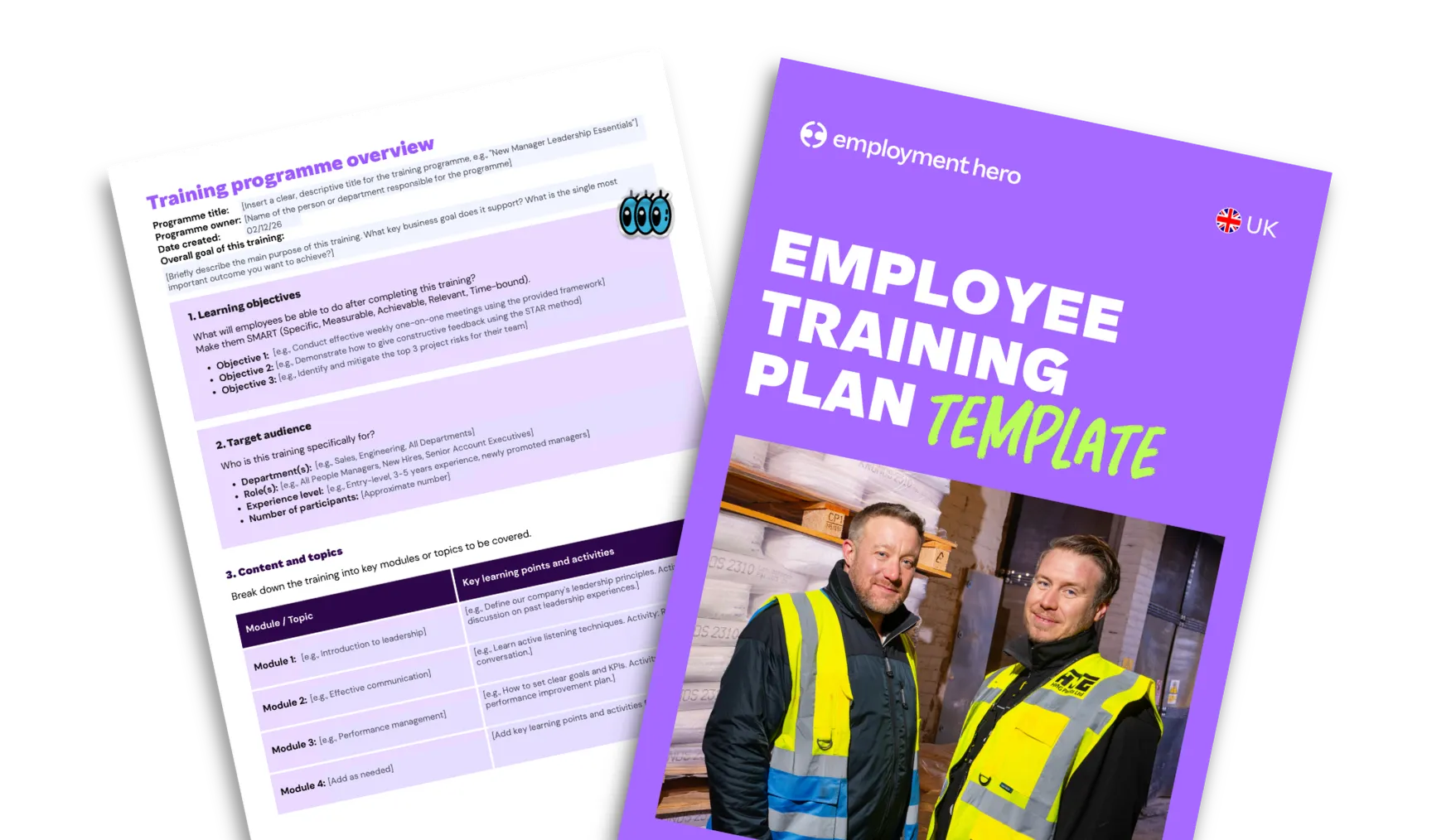The State of Wellbeing at Work Report 2024
Published
The State of Wellbeing at Work Report 2024
Published
Employee wellbeing is one of the most pressing issues facing UK employers in 2024. In a rapidly changing world of virtual offices, artificial intelligence and evolving workplace dynamics, many people are struggling to balance their professional and personal lives. A recent study of over 1,000 UK employees provides key focus areas for employers to support employee wellbeing.
Burnout, balance and the cost of disconnection
The State of Wellbeing at Work Report reveals a workforce under strain. An astounding 65% of UK employees feel burned out because of work. Financial pressures are cited as the leading cause of stress for nearly a third of workers. The data also shows a stark divide in how employees feel, with 42% uncomfortable discussing mental health at work.
These issues aren’t just impacting individuals; they have a tangible cost for businesses. When stress and burnout become commonplace, they can fuel disengagement and attrition, making it difficult for employers to retain talent. In fact, one in three workers has taken leave due to stress or professional burnout. The solution lies in a proactive, empathetic approach to employee wellbeing that goes beyond traditional perks and addresses the root causes of stress and burnout.
What’s inside the report?
Employment Hero is focused on making employment easier for everyone. Our all-in-one employment platform helps to connect employers and employees and streamline admin, payroll, leave, benefits and engagement. As a leader in the employment space, we know the toll that poor mental health can have on employees, employers and the business’ bottom-line. The 2024 State of Wellbeing at Work Report is an in-depth analysis of the UK workforce. We surveyed employees across various industries, seniority levels and working models, to provide a clear snapshot of the challenges facing today’s professionals and suggestions on how to tackle them.
Inside this comprehensive report, you’ll find:
- Burnout in the workplace: Learn why 65% of UK employees have felt burned out and what proactive steps you can take to identify and prevent it.
- Financial stress and wellbeing: Discover how the cost of living crisis is the number one source of stress for UK workers and what employers can do to help ease the pressure.
- Mental health at work: Uncover the reasons why 42% of employees are uncomfortable talking about mental health with their managers and how to build a psychologically safe culture.
- Hybrid vs. in-office: Explore the findings that show fully remote workers have the best work-life balance and how flexibility can be a powerful tool for attracting and retaining talent
Methodology and sample profile. Our results are taken from a survey we carried out using the QuestionPro platform back in April (12 April to 1 May 2024, to be precise). We asked 1,020 folks, all based in the UK, how they felt about their workplace wellbeing – it was an online-only questionnaire which took on average 10 minutes to complete. For more about the methodology and sample profile, download the report.
Key findings

of workers have felt burnt out due to work.

of workers rated their overall work-life balance as ‘poor’, ‘very poor’, or ‘average’.

of us feel uncomfortable talking about mental health.

of workers rate their employer’s commitment to health and wellness as above average.

of workers have taken leave due to stress or professional burnout.

of workers cite financial pressures + the cost of living crisis as their main stress source in the last 3 months.

57% of fully remote workers rate their work-life balance as ‘above average’ compared to 38% of in-office workers and 44% of hybrid workers

47% of Millennials feel stressed at work a few days a week, compared to 37% of Gen X and 28% of Boomers.
Hybrid workers are happier, but there’s still a divide
The report highlights a clear link between a flexible work environment and improved work-life balance. The data shows that remote work is highly valued and can be a significant draw for top talent. The study compared the wellbeing of employees in different work arrangements and found:
- Remote workers are the most satisfied: 57% of fully remote workers rated their work-life balance as “above average”.
- Hybrid workers follow closely: 44% of hybrid workers felt their work-life balance was above average.
- In-office workers lag behind: Only 38% of those who work fully in-office or on-site rated their work-life balance as above average.
Remote work doesn’t just offer balance; it boosts productivity, too. A notable 67% of fully remote employees rated their productivity as high, compared to 54% of hybrid workers. This suggests that for those who can offer it, remote work provides unparalleled flexibility that benefits both employees and the business.
Burnout and unpaid hours: a wake-up call
The report paints a strong picture of the widespread issue of burnout in the UK workforce. 65% of all survey respondents reported feeling burned out in the past three months. This problem is particularly acute among younger generations, with Gen Z (18-24) most likely to feel burned out (73%). Women are also disproportionately affected, with 69% reporting burnout compared to 56% of men.
This widespread burnout is directly linked to the pressure of work, with many employees feeling compelled to work unpaid hours. The report highlights that 17% of workers cited an overwhelming workload and working out of hours as a primary cause of stress. Findings emphasise that burnout is not an inherent part of demanding work but a direct consequence of unmanaged stress. When employees feel directionless and are not supported with clear expectations and boundaries, it can lead to anxiety, stress and burnout.
Employers must be able to recognise the warning signs of burnout and implement strategies to prevent it. Suggestions from the report include encouraging open communication, providing flexible work arrangements and using tools like happiness surveys to identify issues early.
Financial pressure is impacting performance
The cost of living crisis is a significant source of stress for UK employees. Almost a third of workers (29%) named financial pressures as their main source of stress in the last three months, far exceeding other concerns like workload (17%), poor health (6%) and job insecurity (2.5%).
This financial stress is particularly high among younger workers and those in non-managerial roles. 42% of Gen Z respondents cited financial pressure as their main stressor, compared to only 19% of Boomers. Similarly, 31% of entry-level and non-managerial staff felt financially stressed, compared to just a quarter of managers and senior executives.
Employers have a role to play in alleviating these concerns and helping their team to get back on track. Findings show that 56% of respondents don’t think their workplace is doing enough to support them with rising living costs.
Mental health conversations are still taboo
Despite growing awareness, a significant stigma around mental health persists in the workplace. The report found that a surprising 42% of employees feel uncomfortable talking to their manager about mental health concerns. This barrier to open communication is a major obstacle to creating a supportive culture.
The data reveals some interesting divides in this area:
- Company size matters: Only half of the employees from small companies felt comfortable discussing stress and burnout, compared to 62% of those from large companies.
- A North-South divide: More employees from the South of England (63%) were comfortable talking about stress and burnout with managers than those from the North (56%).
While the numbers for discussing non-work-related issues like a family illness or loss are much better (71% feel comfortable), the data suggests that conversations about work-related stress and burnout remain challenging. Employers must create a psychologically safe culture where employees feel valued and heard. This goes beyond annual check-ins and requires HR leaders to implement strategies for change and provide continuous support.
Transform impact into action. Download the full report.
To get the complete picture of the state of employee wellbeing in the UK and discover actionable strategies for your business, download the full report.
Before you download the report, we just need some details:
Related Resources
-
 Read more: EOFY HR Audit: What to Review in March
Read more: EOFY HR Audit: What to Review in MarchEOFY HR Audit: What to Review in March
Complete a EOFY HR audit with our practical checklist. Review compliance, people processes and compliance to reduce risk before the…
-
 Read more: How to Choose an HR System: A 2026 Buyer’s Checklist
Read more: How to Choose an HR System: A 2026 Buyer’s ChecklistHow to Choose an HR System: A 2026 Buyer’s Checklist
HR software is more than features. Discover how the right system can streamline operations, boost efficiency and future-proof workforce management.
-
 Read more: How to Create an Employee Training Plan: Template & Guide
Read more: How to Create an Employee Training Plan: Template & GuideHow to Create an Employee Training Plan: Template & Guide
Ready to build a training program that drives results? Learn how to create an effective employee training outline that aligns…



















